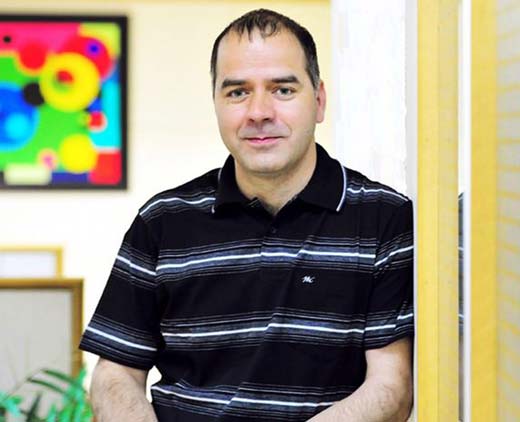From war in Afghanistan to political unrest of Nepal, from developmental issues in Loas and Cambodia to conflict in Kashmir, Syed Nazakat has covered all in his 12 years of Journalism. Syed Asma talks to Delhi based Kashmiri investigative journalist about his journey

“Curiosity makes a journalist,” is what Syed Nazakat has learnt over 12 years of his journalism career. Presently working as a special correspondent with the weekly magazine ‘The Week’, Nazakat has travelled in and reported from 22 countries across the world. He, perhaps, is the only journalist from Kashmir to do so. He has extensively reported war of Afghanistan, political unrest of Nepal, developmental issues in Loas and Cambodia and conflict in Kashmir.
The Srinagar-born reporter Nazakat is the first journalist from India who has reported from an Al-Qaeda rehabilitation camp in Saudi Arabia. Recently, he reported from Guantanamo Bay and wrote about the plight of the prisoners there.
These two stories, reporting from Al-Qaeda rehabilitation camp and Guantanamo Bay, have been his most interesting and important assignments, Nazakat says.
“It was very interesting to learn how these [Al-Qaeda] fighters are trying to get to their normal lives with their families and it was even more interesting to report from the world’s most dangerous jail, Guantanamo Bay and to know how the prisoners are kept there.”
Nazakat graduated from Kashmir and has done his post-graduation from Konard Adenauer Asian Centre for Journalism, (ACFJ), Manila, Philippines. Wanting to pursue journalism since teens and enjoying full support from his parents he started his career with The Kashmir Monitor, a local English daily.
Starting like any other journalist, Nazakat free-lanced with many local publications. After working here for couple of months he moved to Bangkok for some time and later shifted to Delhi.
Initially covering developmental issues in valley for local publications, Nazakat over this decade has now produced stories that reveal India’s secret torture chambers, India’s rendition program in Nepal, suicides in the Indian military, arms smuggling in Bangladesh and women trafficking from Afghanistan.
Investigative journalism excites him, it seems.
His style and efficiency of investigative journalism has made him a member of International Consortium of Investigative Journalism (ICIJ). It is an active global network of 160 reporters, from more than 60 countries across the globe, who collaborate on in-depth investigative stories. It is claimed to be the world’s best cross-border investigative team. So far only two Kashmiri have been able to be its member, one is veteran journalist Yusuf Jameel and another, Nazakat.
Nazakat’s areas of specialization include military and security, money laundering, terrorism and human rights.
Having reported almost every beat, Nazakat believes war reporting is the toughest of all but suggests every reporter to do it, at least once.
“You have to act smart while covering war. Apart from saving yourself from getting killed, a war reporter has to think of the consequences of his report in the world outside,” he says.
He adds, “reporting war not only has physical insecurity but definitely leaves psychological impact as well.”
He believes, the gory images of war, bloodshed and killings always takes a toll on reporter’s psyche.
Sharing one of his experiences, Nazakat quotes his meeting with Wali Karzai, Hamid Karzai’s brother. Wali was assassinated a few months after Nazakat met him.
“We chatted for more than three hours. I had lunch with him, talked about him, his brother, family and Afghanistan. But later he was assassinated. Each time I visit Afghanistan, those memories disturb me.”
“It is tough not to find those people around with whom you have spent time and talked to while doing your assignments.”
Besides, the once big houses and buildings were turned into rubble overnight. All those scenes are generally disturbing, he says. Many of his colleagues and seniors after covering wars have suffered from its post-traumatic disturbances and had to take a break to get over it.
Practising journalism for more than a decade, Nazakat has received many journalism awards including India’s prestigious Ramnath Goenka Excellence in Journalism Award, the Karmaveer Puraskaar national award and Christiane Amanpour Award for Religion Journalism in 2013. He was also the finalist for the 2010 Daniel Pearl Awards for Outstanding International Investigative Reporting.
Besides, he is a guest faculty for the Convergent Journalism program at AJK Mass Communication Research Centre – Delhi.















